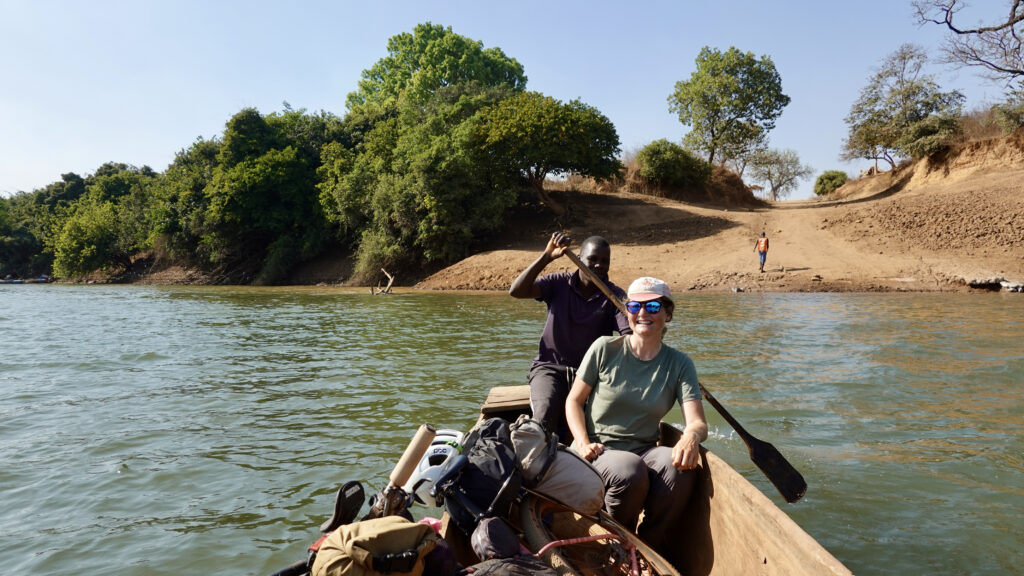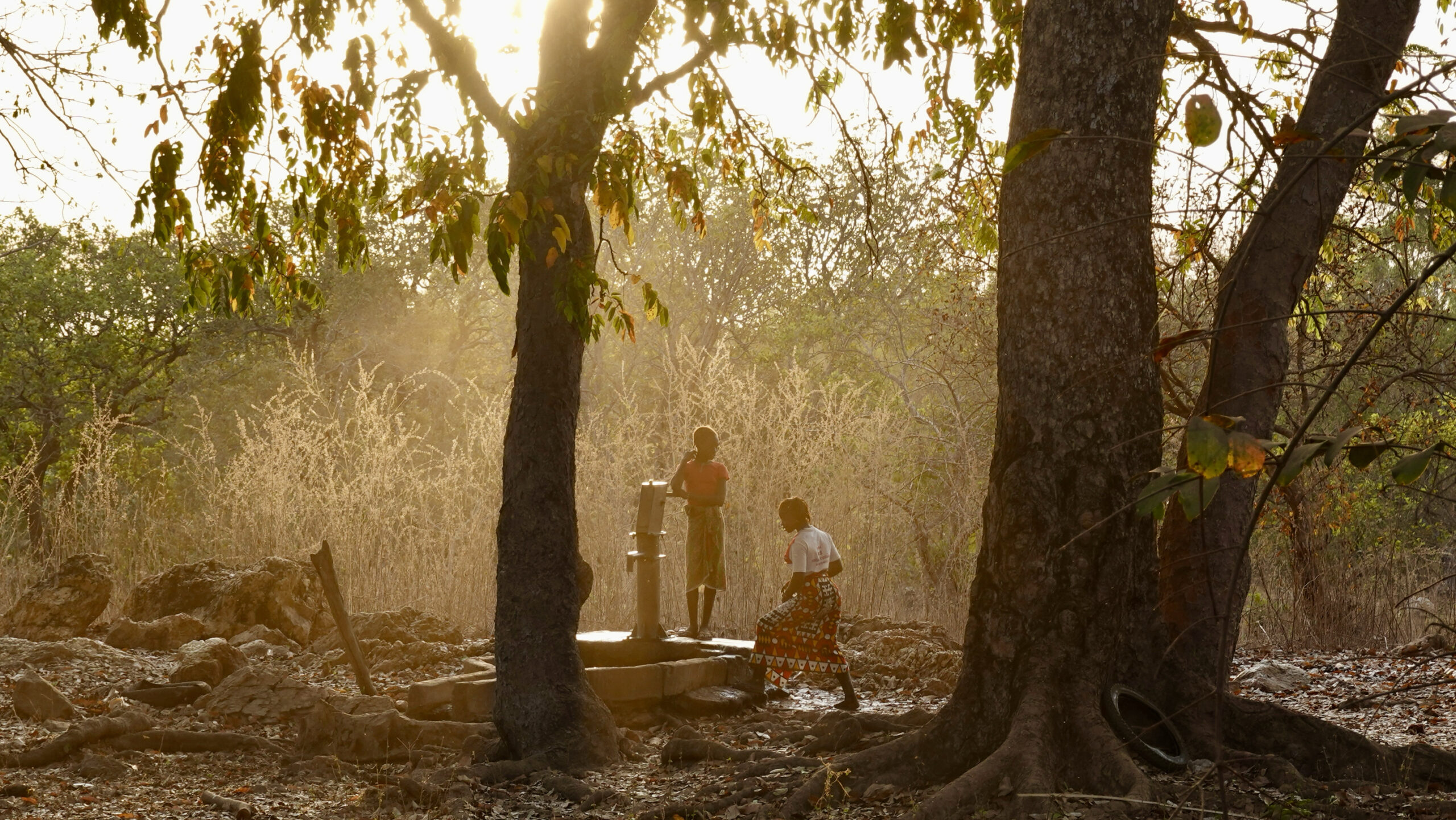Guinea-Bissau is a small country in West Africa that does not get much attention in the media. It is located on the Atlantic coast and has Senegal and Guinea as neighbors. The country has just under 2 million inhabitants and is one of the poorest countries in the world. This is partly due to the country's lack of natural resources and political instability. Since the country became independent from Portugal in 1974, there have been four coups and many more unsuccessful attempts. When the Portuguese left Guinea-Bissau, they left only a beer factory as a source of income for the country.
Guinea-Bissau is the first former Portuguese colony that we visit on our trip. For the first time, we can use our Spanish to communicate, as Portuguese and Spanish are not so far apart. However, we soon find out that many in the villages only speak the local language Kriol.
The call 'Toubab' is replaced by 'Blanco' – which means white in Portuguese. It is still said with a huge smile, but it can be a bit enervating to listen to. Especially when children shout it loudly in unison and in time. We want to turn around on the bike to see if the local football team is behind us.
We do our best to be the best version of ourselves when we meet locals – smile, wave and interact. It usually comes naturally because everyone is so welcoming and gives us a huge smile that is hard not to return. It is a gift to be so exposed when we travel by bike. We don't have a car window between us and the locals. We have to stop to get water at the well, buy food often so as not to carry too much food with us on the bikes, and word gets around quickly when we cycle into a village. When we sleep in a village, we are also curiously watched. It provides many fun meetings and experiences, which is precisely the reason why we set off. The downside is that we are always available. It's hard to hide if you need to pull the feelers and charge the batteries.
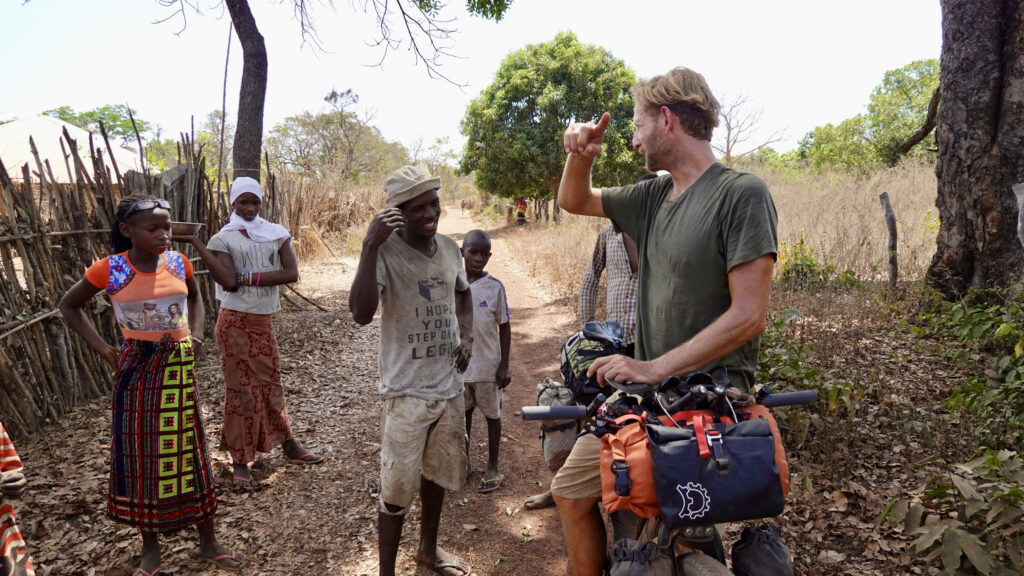
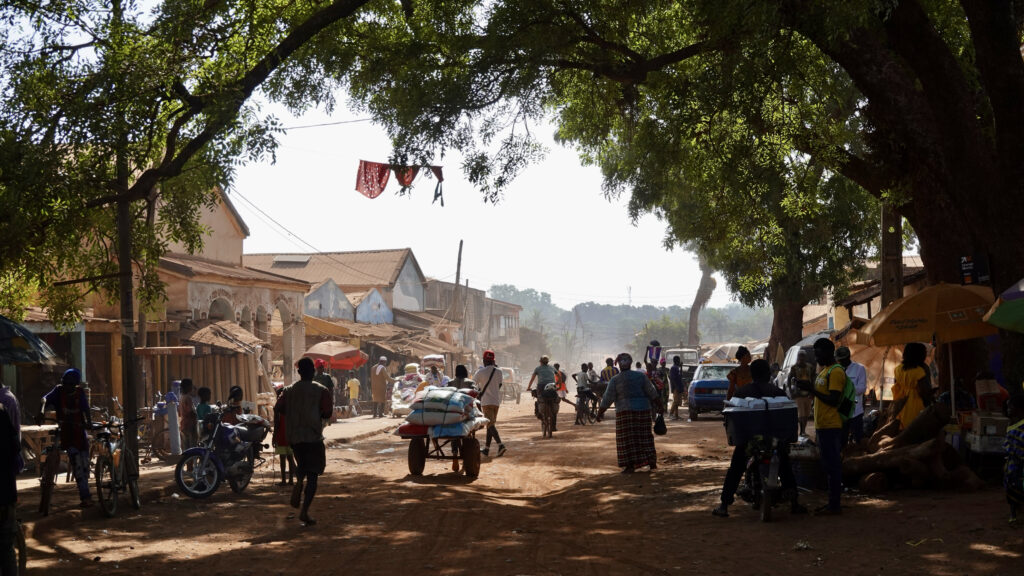
The mangrove at sunset
As always, we try to take the small roads because we think it's more fun, but also because the cars in Guinea-Bissau don't have brakes. It always feels that way. So in the first town, after crossing the border from Senegal, we turn off the main road. We have seen on the map that it is possible to take a small boat across a river inlet through the mangrove to another small town. From there we can cycle to the capital on small roads.
We find the place where the boat is going to sail from, but we can't see a boat or anything that looks like a port. We ask a group of men who are sitting a little further up the road under some large trees. They enjoy the shade, listen to music and talk. They are a mixed bunch of young, old and middle-aged. Two of the men are wearing uniforms and the others are hanging out with them. It turns out to be the Coast Guard. The man who appears to be responsible is wearing sports shorts, a red T-shirt, woolen hat and a huge cross around his neck. He takes us down to the place where the boat leaves. He takes a look at the few wooden canoes lying on the sandy bottom, as it is low tide. He shakes his head. That is not an option. We have to wait for the boat, which arrives tomorrow.
We understand that the boat arrives at 09. So even though it's only 4pm, we decide to wait for the boat the next day. We look at each other a bit and where we can pitch the tent. We don't want to pay for a hotel. We ask the coast guard and we are allowed to pitch the tent in front of their building.
The afternoon is spent hanging out in the small town and with the coast guard. The neighbor, who is an English teacher, comes by and chats, and other people also regularly come by to hang out with the men. We learn to say; obrigado, boa tarde, bom dia and boa noite in Portuguese which mean thank you, good afternoon, good morning and good evening. It is not quite enough to plan a boat trip.
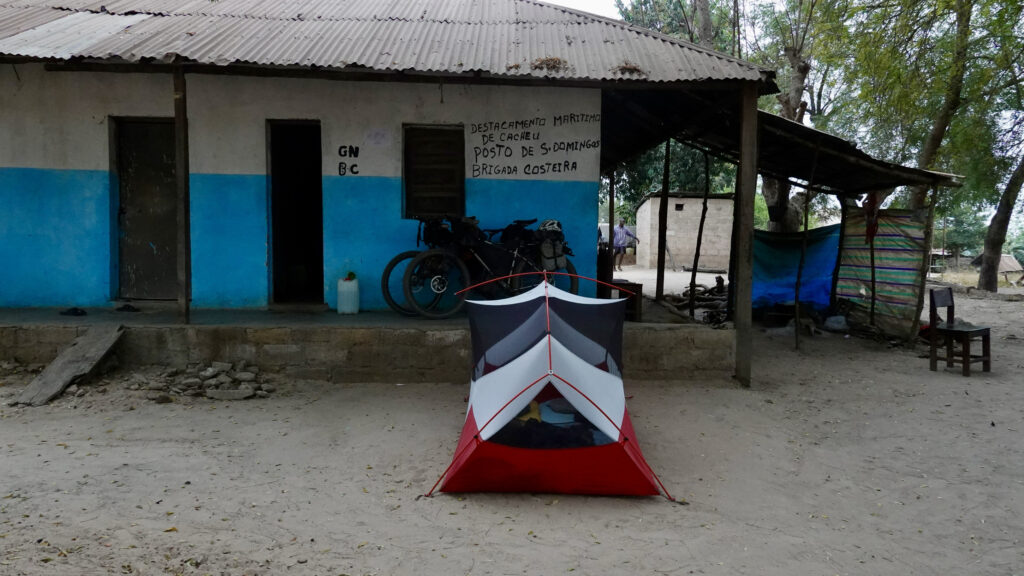
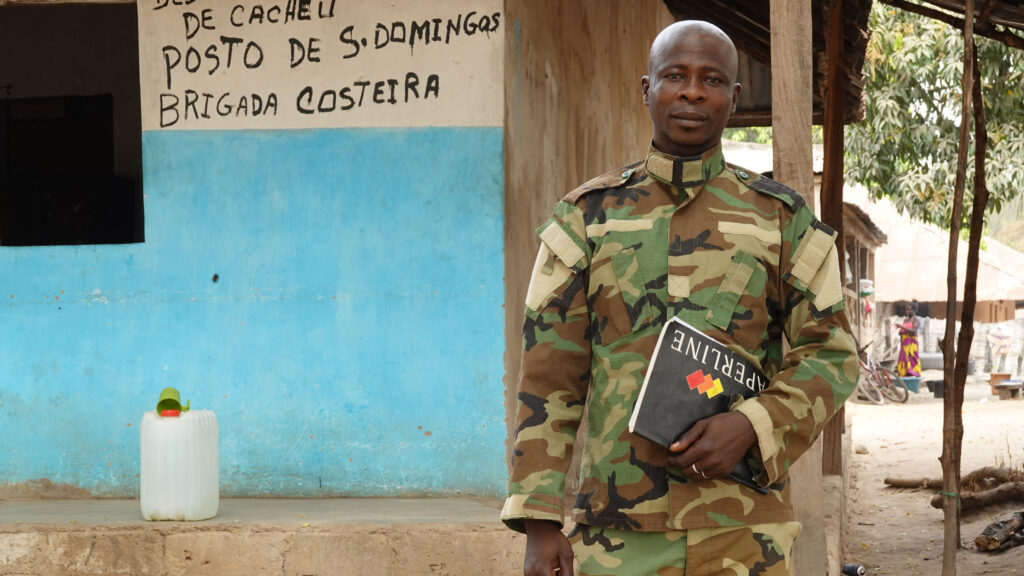
The next morning we are up in good time, but no boat arrives. We have misunderstood the timing. The boat does not arrive until 14 and sails off again at 15. We are a bit tired, but we decide to wait for the boat, as the route looks really exciting. The boat arrives at 3 p.m., but it's getting close to 6 p.m. before we set sail. More and more people, goods and a drunken man keep coming, who entertains the whole crowd. The goods, a few goats, people and our bikes come aboard. We are finally ready to set sail, but now there is not enough water to push the piroq free from the sandy bottom. So we wait for more tides. After a while we succeed and we sail out through the river system. It is magical to sail through the mangroves at sunset and see how the sky changes color and the red-orange-pink colors change as the sun goes down.
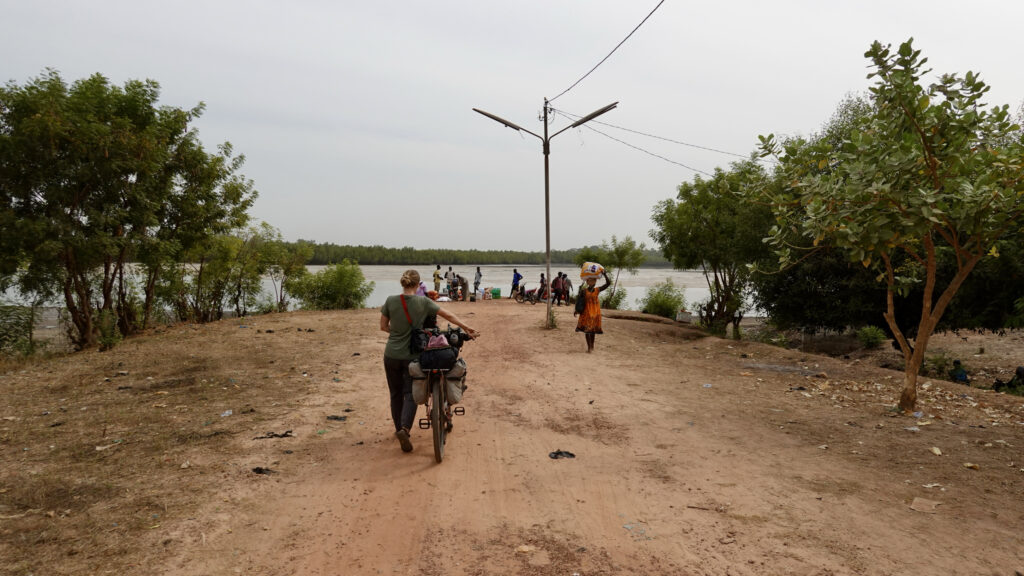
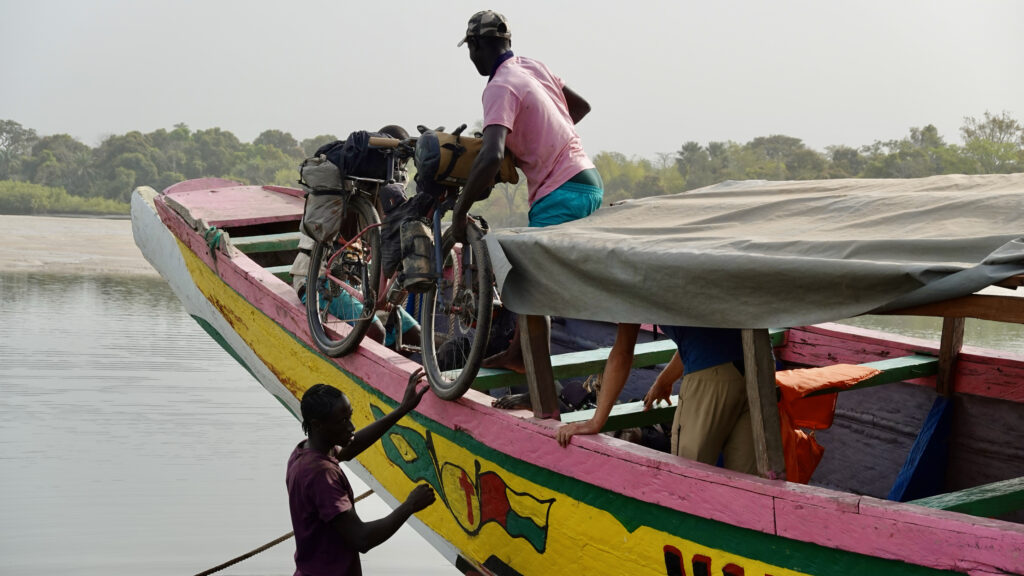
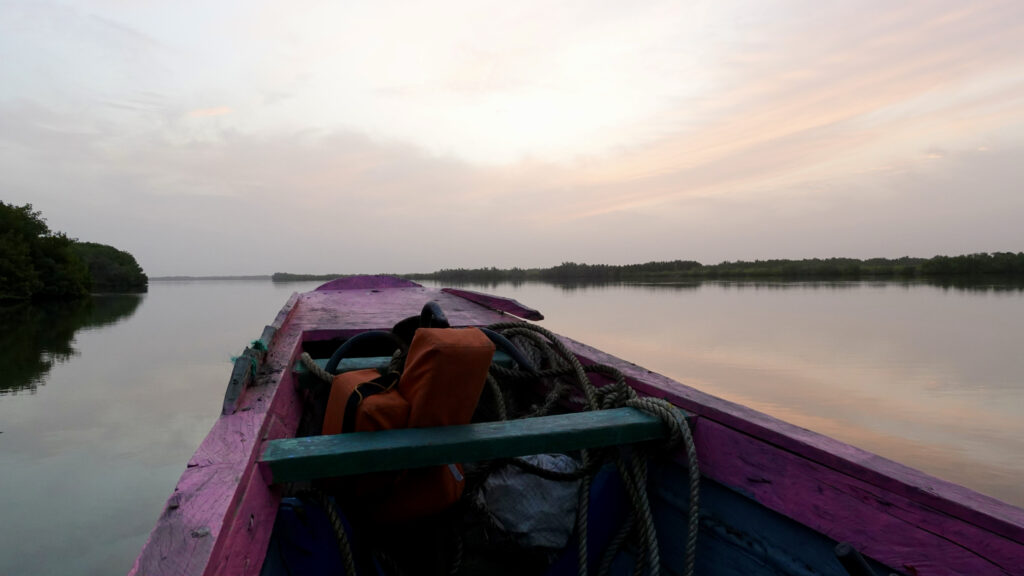
We see several women in small wooden canoes who are out gathering oysters. They sail very close to the mangrove or almost into it and cut oysters free from the mangrove on which they are sitting.
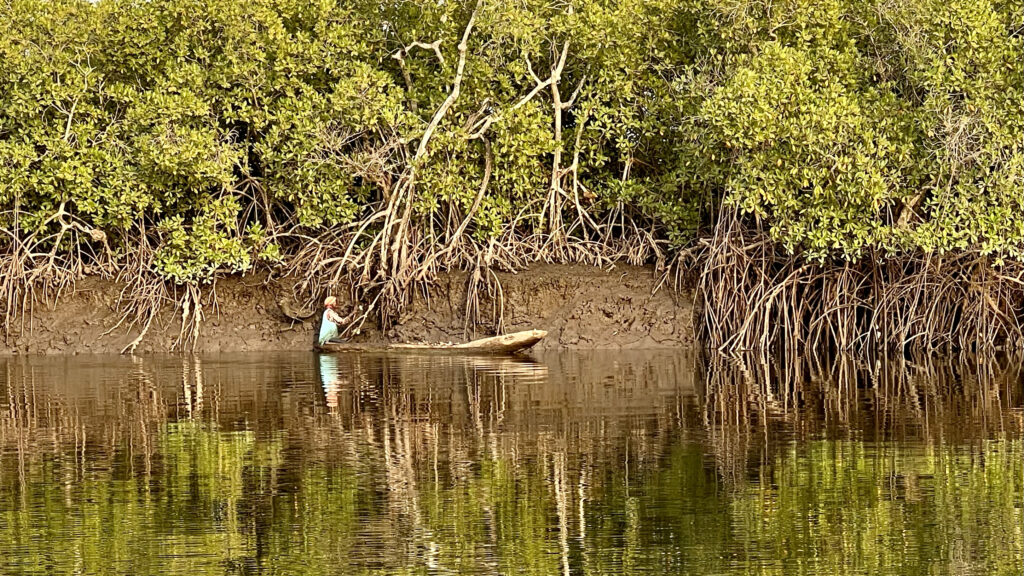
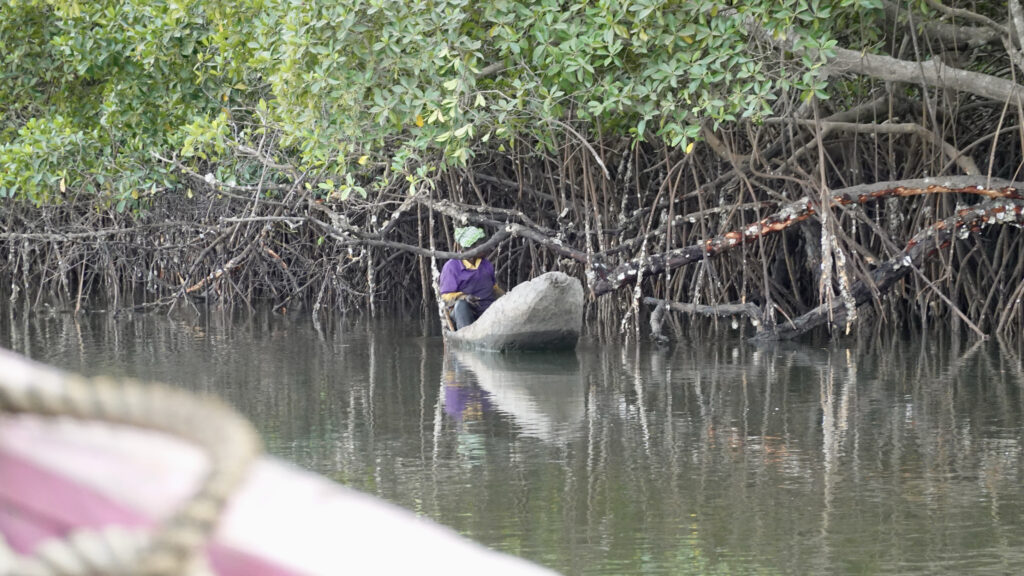
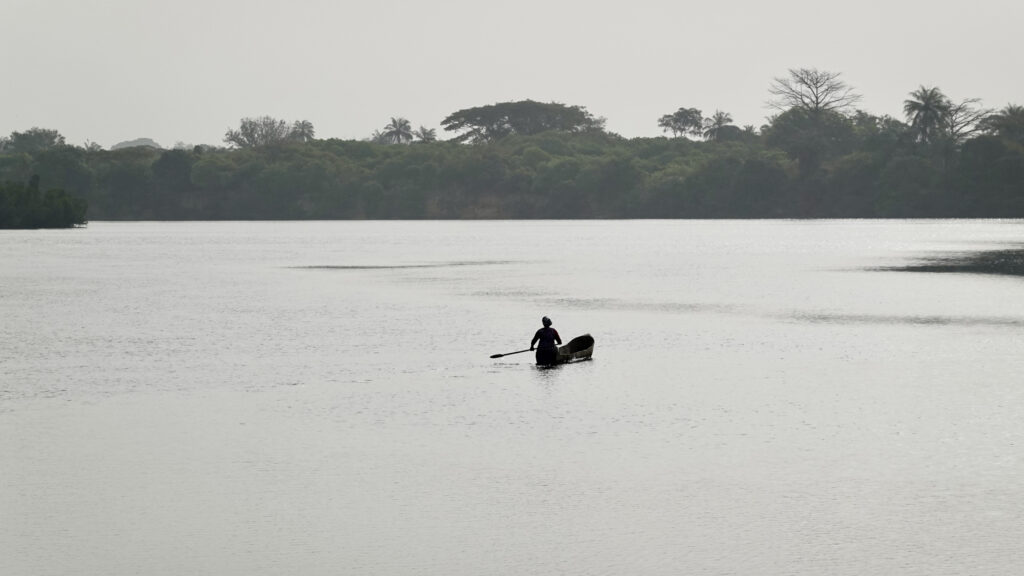
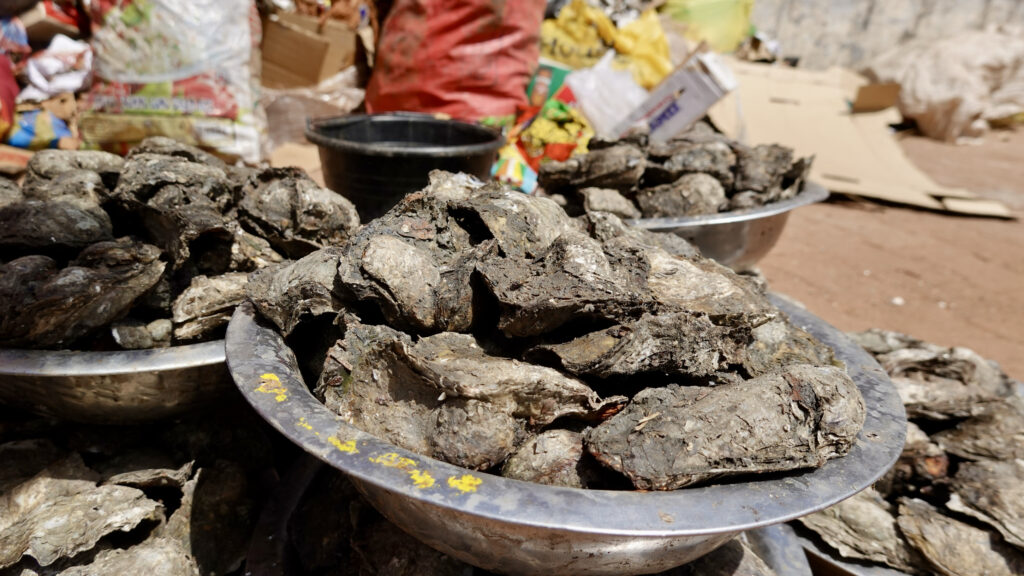
It is dark before we reach the small town of Cacheu, but there are people standing on the quay waving with lights, so the captain will surely find the way. Just before we reach the small harbour, the engine cuts out and the boat begins to float backwards. Even though we arrive much later than expected, have some engine problems along the way and eventually shut down the engine, no one complains. No one who stresses. Everyone takes it quite calmly. Patience is indeed a skill that Africans possess.
Slave Museum and Portuguese Fort
The next day we find the museum, which deals with the extensive slave trade in the area. The city is the first area that Portugal took over in Sub-Saharan Africa, because it was a strategic trading position at the outlet from the Cacheu River to the Atlantic Ocean. From here the Portuguese transported goods, ivory and slaves on to Cape Verde and from there on across the Atlantic. The Europeans brought modern technology and ships, so the Africans did not stand a chance in the fight against them. The museum is two floors with boards, descriptions and really informative. Even though we know history, we are still learning new things. None of us have heard that so many slaves came to Brazil, and that India and China also received slaves. How Africa already had a human trafficking system that the Europeans exploited and expanded. According to the museum's figures, 12,500,000 people were transported from Africa across the Atlantic between 1501 and 1866. It is truly a cruel period in human history.
The museum also has information about where slave-like conditions still take place. Fortunately, Scandinavia goes completely free, but it is frightening how many countries still have worse conditions for workers. Also here in West Africa.
In addition to the museum, there is also a small fortification, which the Portuguese first built in 1588 and later expanded. The fort has a gate, four towers and still stands with cannons. Although restored, it is still somewhat dilapidated. Compared to a modern fortification, it looks like a miniature version. Especially in proportion to its really big bizarre sculptures of the Portuguese sailors Gonçalves Zarco and Nuno Tristão, who were the first to occupy the coast of Guinea. Inside the middle of the fort grows a tree with the most beautiful white flowers. They look almost heavenly. It must be for all the people who suffered an unhappy fate under Portuguese rule.
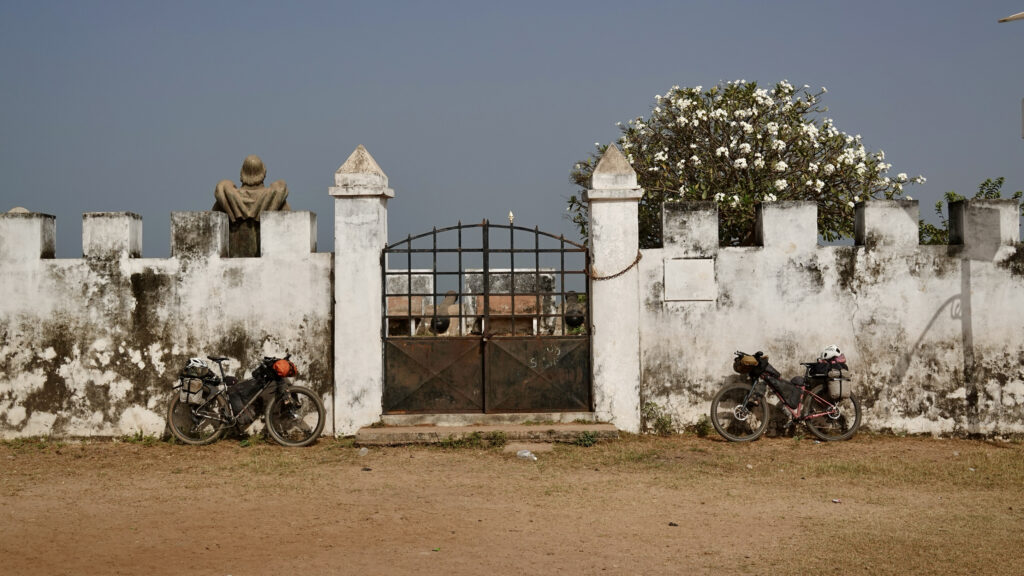
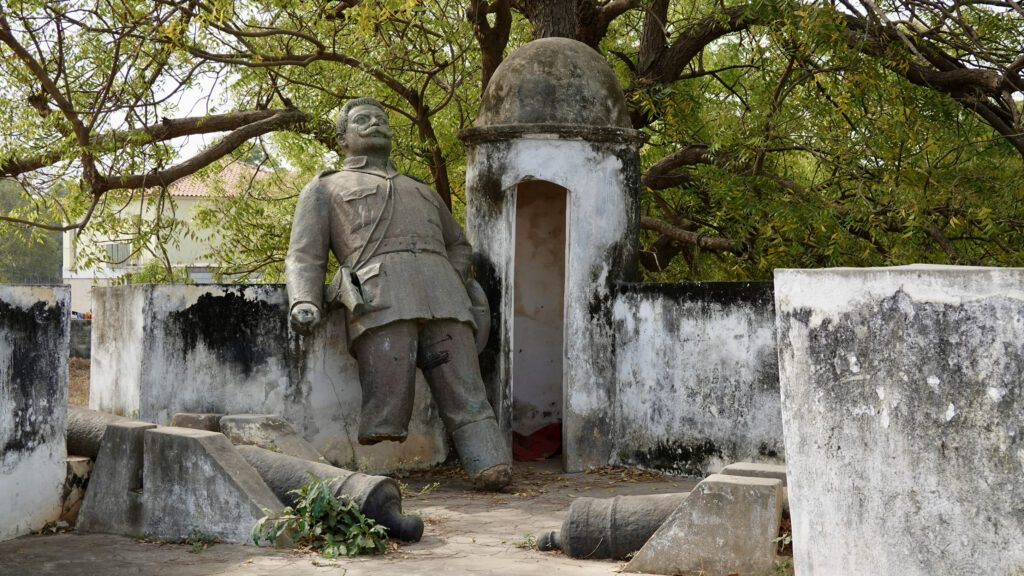
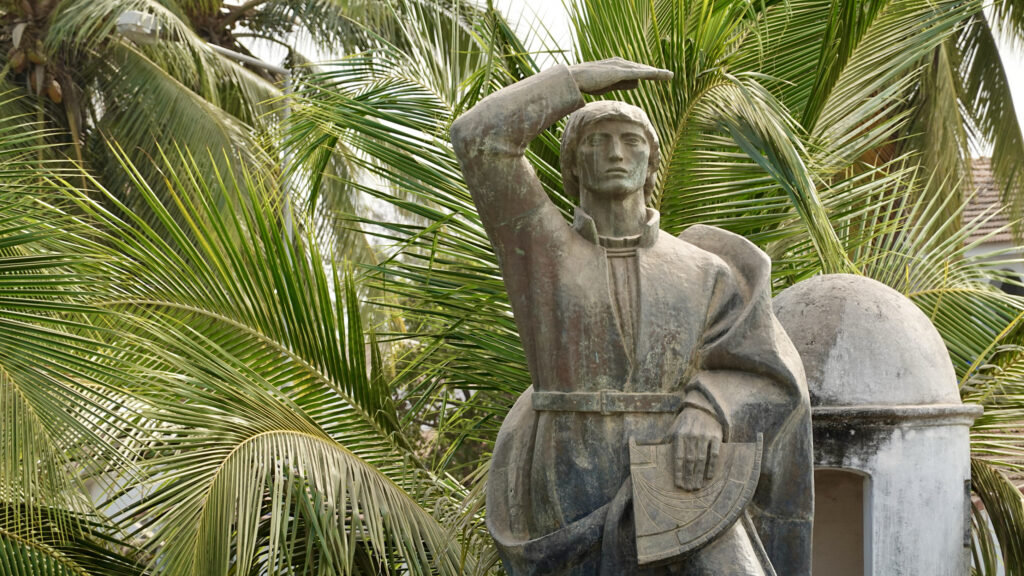
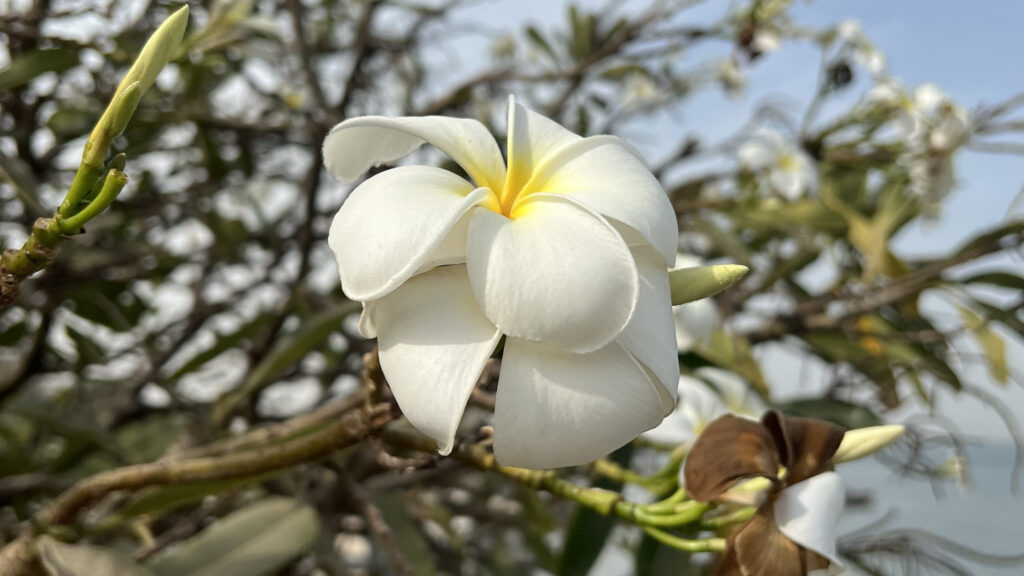
Hospitality in Bissau
We arrive in the capital Bissau in the hectic Friday traffic, so it's a good idea to keep your eyes and ears open. We pass a large market and the town is bustling as they prepare for the carnival. Our wheel is pointed towards a campsite, which is located inside the city.
On the way, we want to withdraw money and in the queue for the ATM, we strike up a conversation with Monica and Diana. They both work at a hospital in the city and are respectively from Colombia and Spain. They ask if we need a shower and if we want to stay with them for the night. We said yes thank you in unison. It came so unexpectedly and one of the best things about traveling. To meet people who have the energy and desire to spend time on foreign travelers.
We drag the bikes around the corner and up to the first floor, where the two women have a lovely apartment. They will work in Bissau approx. a year and train nurses and doctors at the hospital. Monica and Diana start an extended weekend because of the carnival, so a beer is opened and the atmosphere is really good.
'Mi casa es tu casa' (my house is your house) said Diana from Colombia and it evokes really fond memories of South America. The warmth and hospitality that we encountered throughout the continent. Monica immediately says that we must finally take a shower and shows us the room where we will sleep. There is a huge double bed and access to the balcony where the bikes are placed. Monica also cooks for us - super delicious food with vegetables. Afterwards we go for a short walk around the neighborhood and they talk about the city.
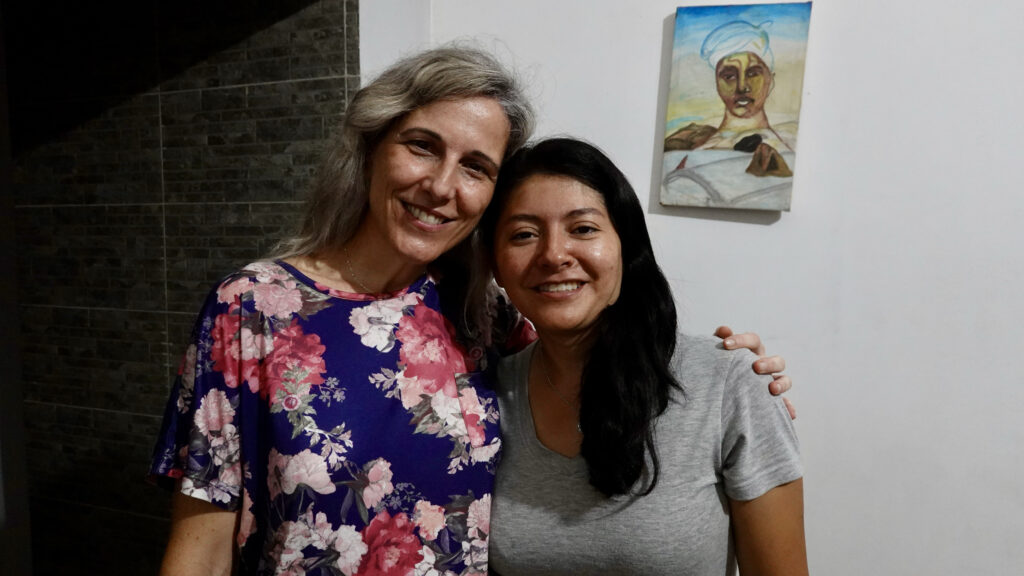
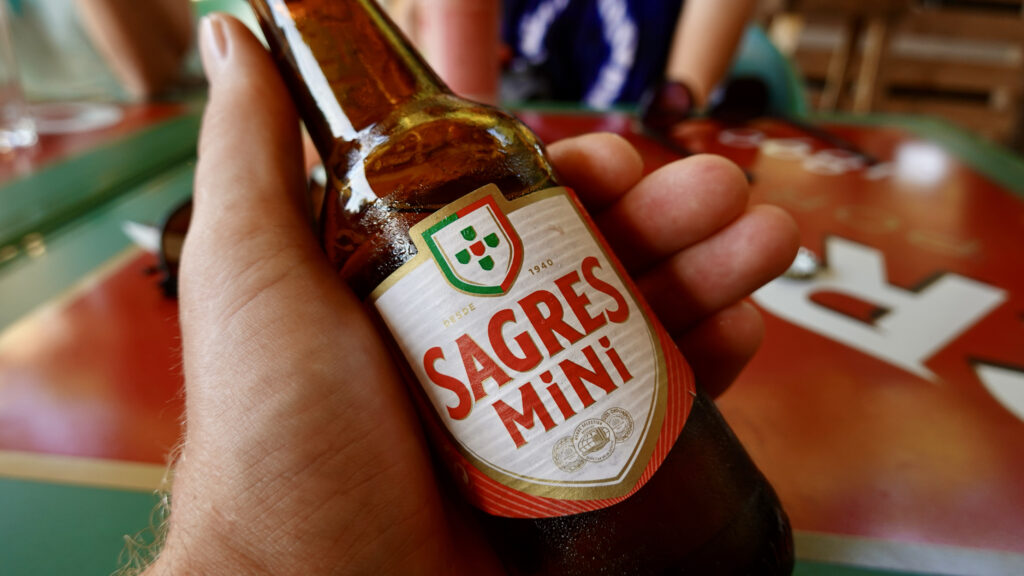
We have many good talks, and they tell, among other things, how the hospital doesn't have much. All patients must purchase what is needed for their treatment themselves. And many cannot afford that. Therefore, people die from diseases and complications that could easily be avoided if they had access to a better and more well-functioning health system. Even the needles are bad, and they don't have the opportunity to do many analyzes of e.g. blood or scans, says Monica. We do not realize that there is a difference between needles and that medicines are ranked, where Africa often gets the worst. The same applies to the professional level of doctors and nurses, which is deficient. Diana and Monica are sent by the Basque Country in Spain along with three others to help and train the doctors and nurses. They really make a difference and they are busy. They are even called after work by the doctors on duty to ask their advice.
Once again, we send a thought home and how lucky we are with our Danish health system with super well-trained staff - which is even free.
We were actually supposed to leave the next day, as Monica and Diana are going on an extended weekend, but they ask if we want to stay in the apartment while they are away. We are deeply grateful and so hope that they will visit us in Denmark, so that we can repay the hospitality that they showed us. What a fantastic meeting with some lovely people who came out of the blue.
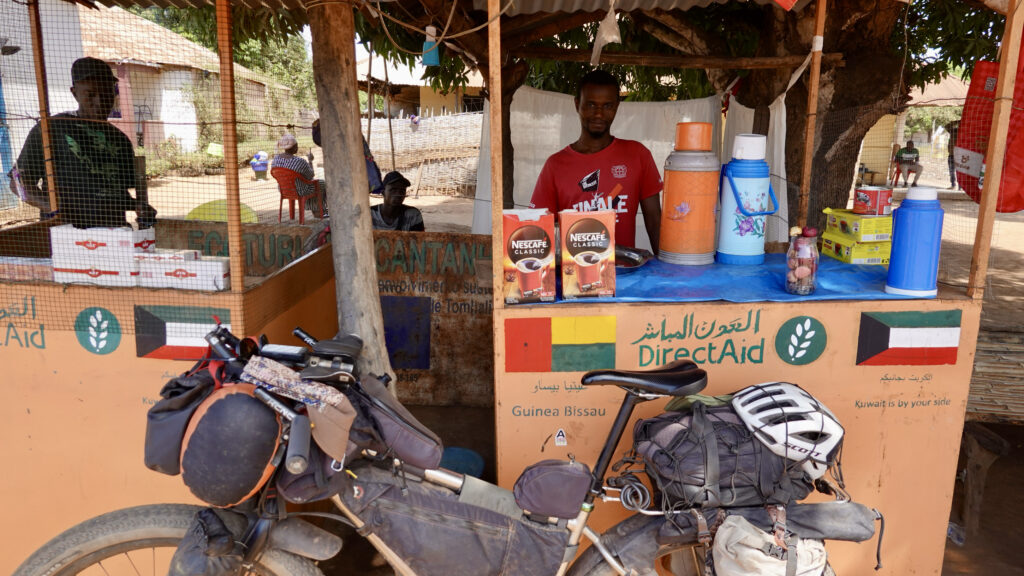
We have been looking forward to this year's carnival in Bissau and expectantly we go out into the streets on Saturday. The main street through the town is closed to cars. People go back and forth and enjoy themselves with their friends. Several small football matches are taking place in the street and spirits are high. There are some dressed up and small stalls selling red hats with 'Merry Christmas' written on them. We talk to locals who tell us that it is the day after the carnival that is really good. So we go out again the next day, but it's the same. We are told that the carnival has changed with the new president so that it is now only in a limited area. Later we learn that the big parade is not until Monday. Even if we don't see the parade, it's fun to experience the carnival and all the happy people in the streets.
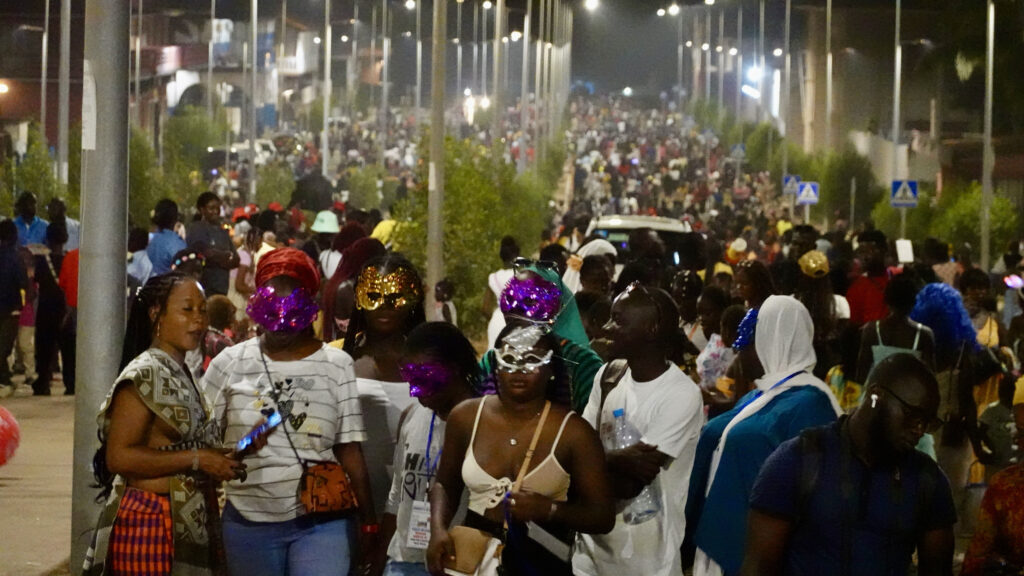
Cashews are the country's most important export product
From Bissau and on towards the border with Guinea, we have chosen another route on small roads. We take the ferry from Bissau to the small town of Enxude. It's the same story as last time. The ferry leaves the harbor a few hours later than planned, but no one raises an eyebrow.
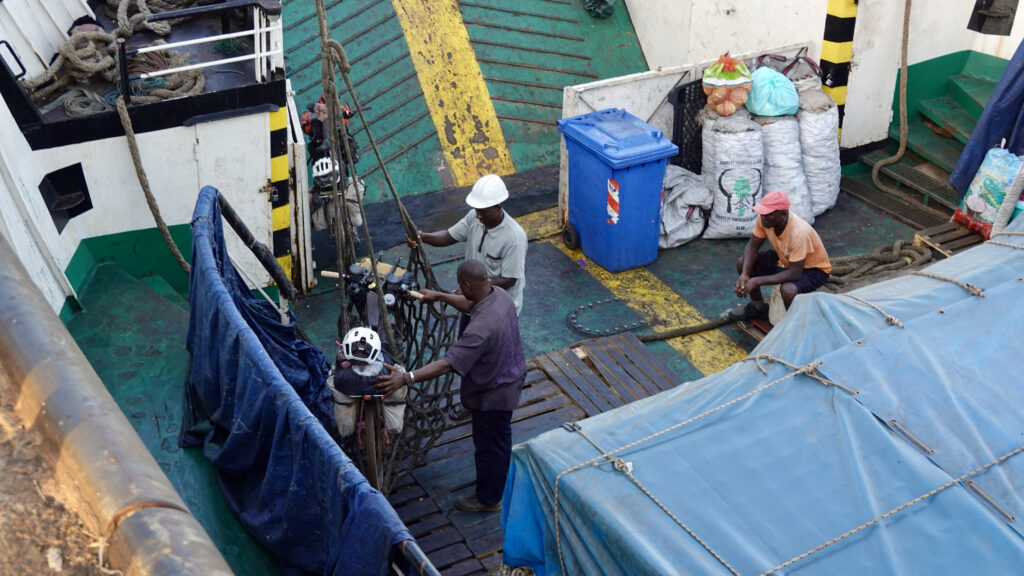
On the other side, we are dropped off at a small landscaped quay. From here we continue on dirt and gravel roads through small villages. There is no electricity here, the water has to be pumped up from the well, and we can see and sense from people that they don't have much.
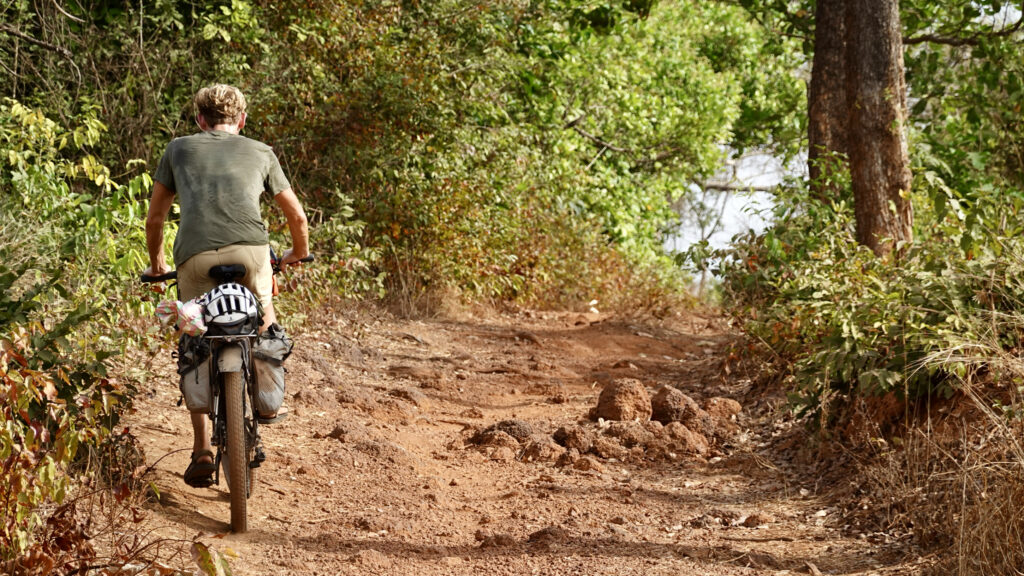
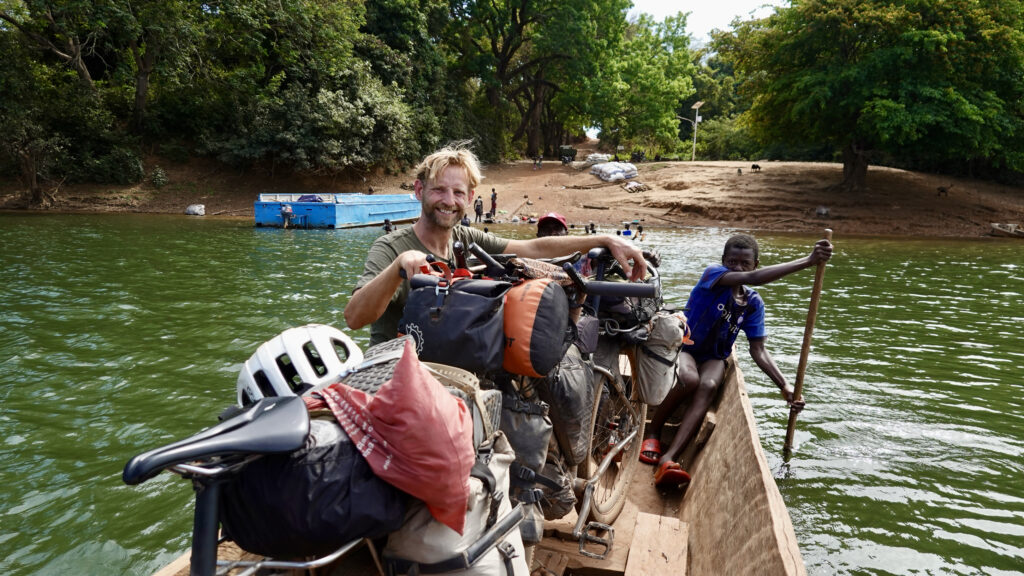
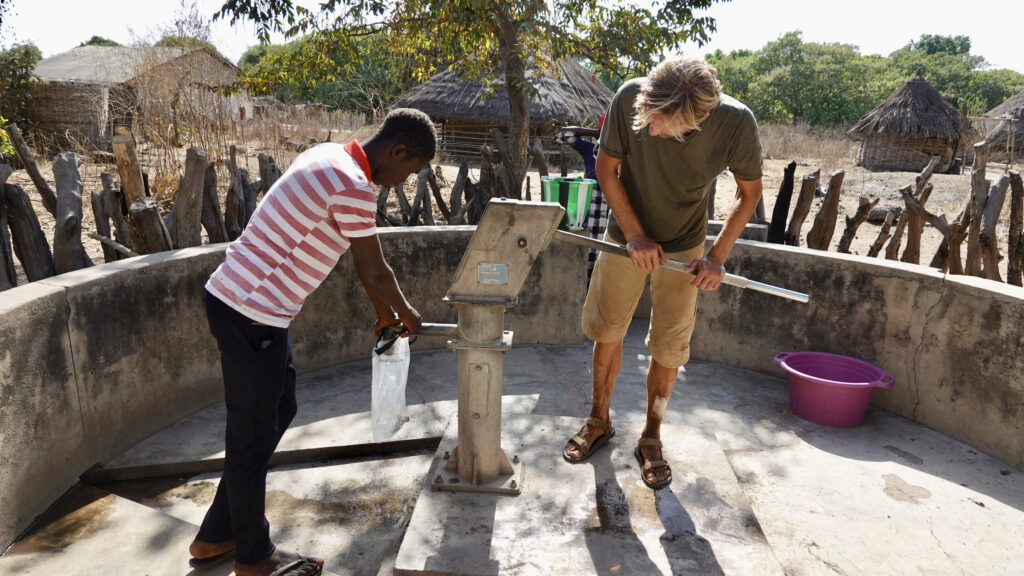
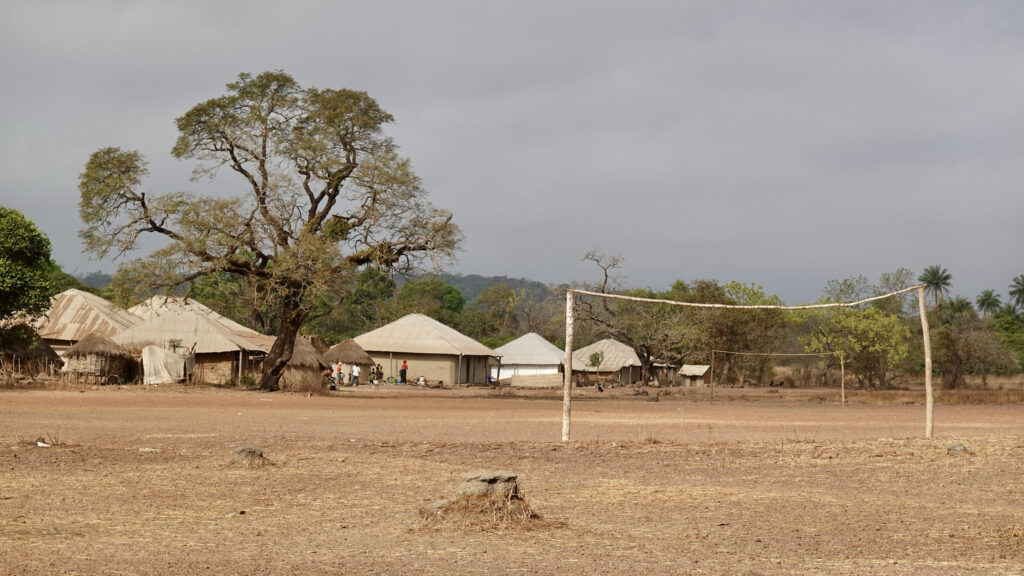
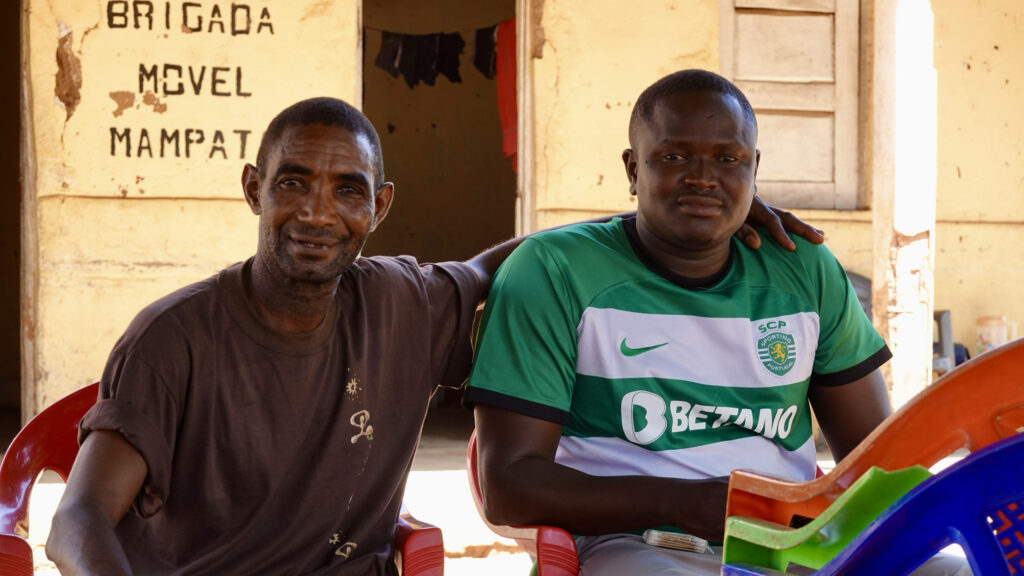
Along the way we see many cashew trees, which are one of the country's most important sources of income. The cashew tree was introduced by Portugal, who brought it home from Brazil, and since the 1980s it has had a significant role in Guinea-Bissau's economy. Cashew production accounts for up to 90% of the country's exports and is the most significant source of income in rural areas. It is a fragile model for a country to have invested so much in a product, and it is part of their economic challenge.
Right now the cashew trees are blooming and we see green fresh cashews hanging on the trees. Kenneth tastes one of them, but it is no success. It's completely sticky and it's hard to get it off your fingers again. It is too early. Later we see the trees, where there is also a fruit for every single cashew. The fruit is bursting with antioxidants and vitamins, but it also has a lot of tannins, so it is a little sour when you eat it and dries out your mouth. Often it is not used for anything, so a lot is really wasted to get a cashew nut. In addition, fruit, nut and shell are separated by hand. There is nothing to say that cashews cost more than other nuts. We buy cashew nuts from last season at the market. Huge, delicious, juicy cashews, which they briefly roast. There is really something about eating food in the country where it comes from and knowing how it grows.
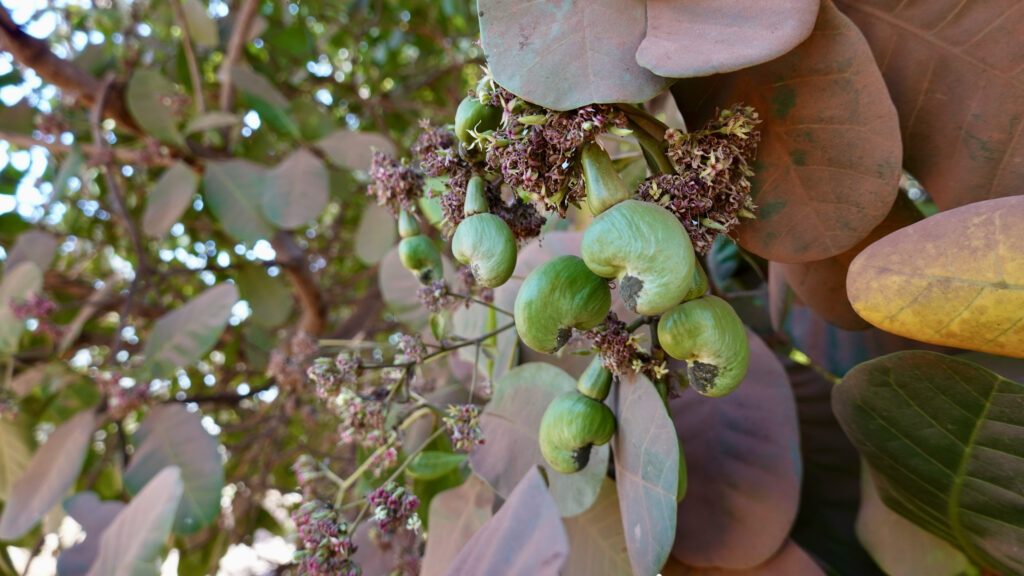
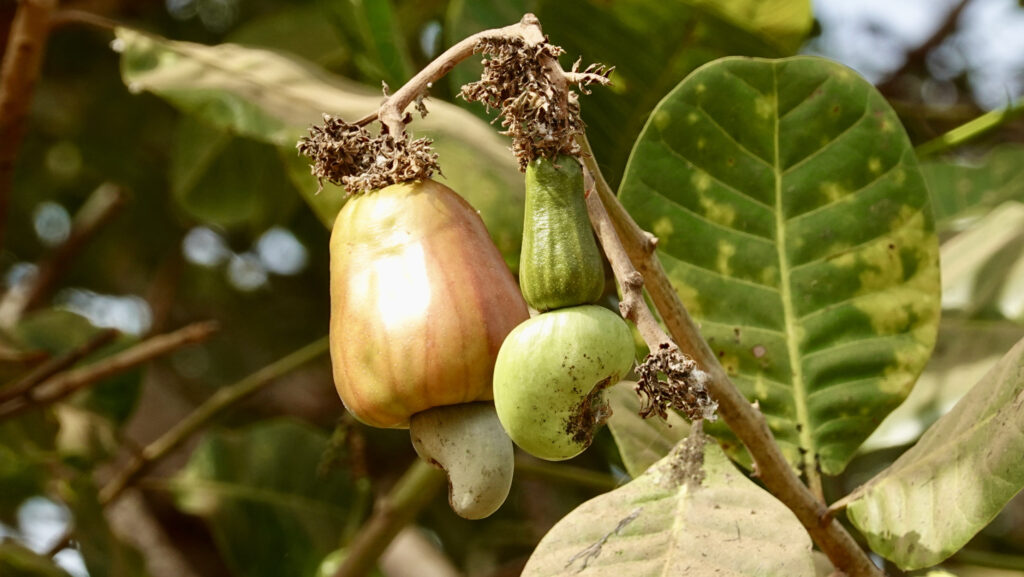
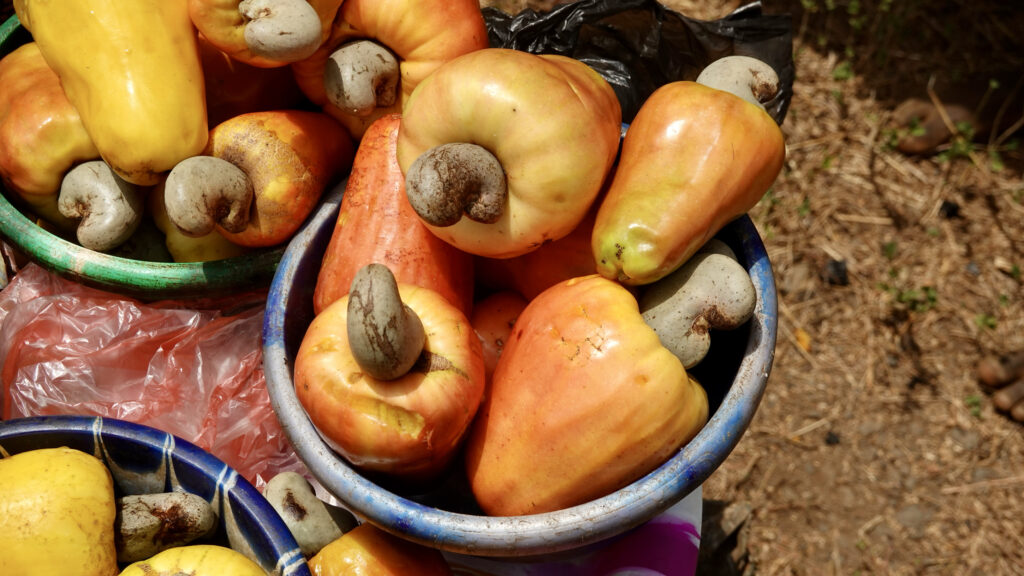
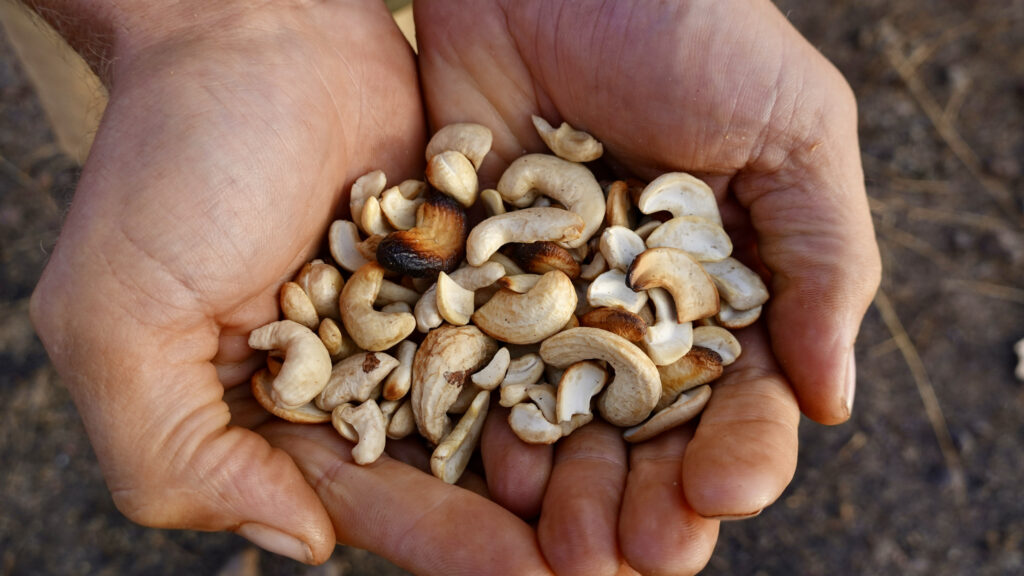
The same goes for the mangoes that we have seen hanging on the trees since Gambia. In Bissau, we can finally put our teeth into the first delicious ripe juicy mango. There are so many mangoes on the trees, and now we believe when the locals say that there are so many mangoes in season that it is difficult to get them eaten.
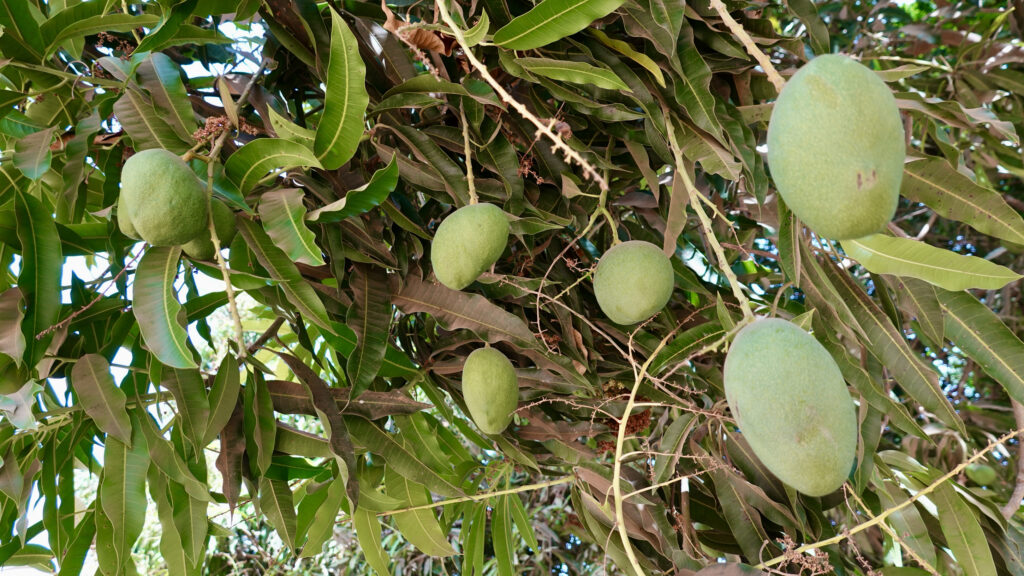
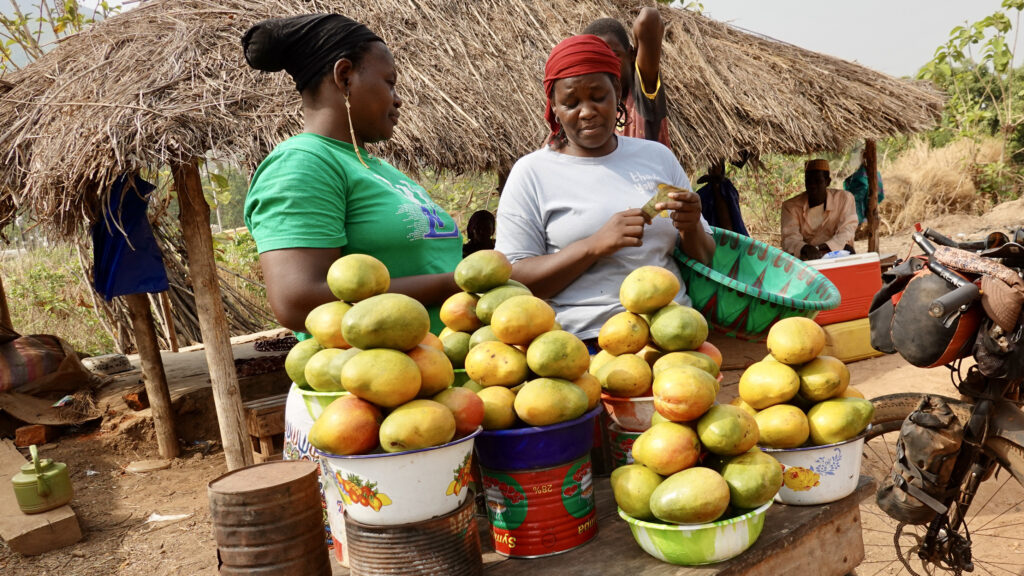
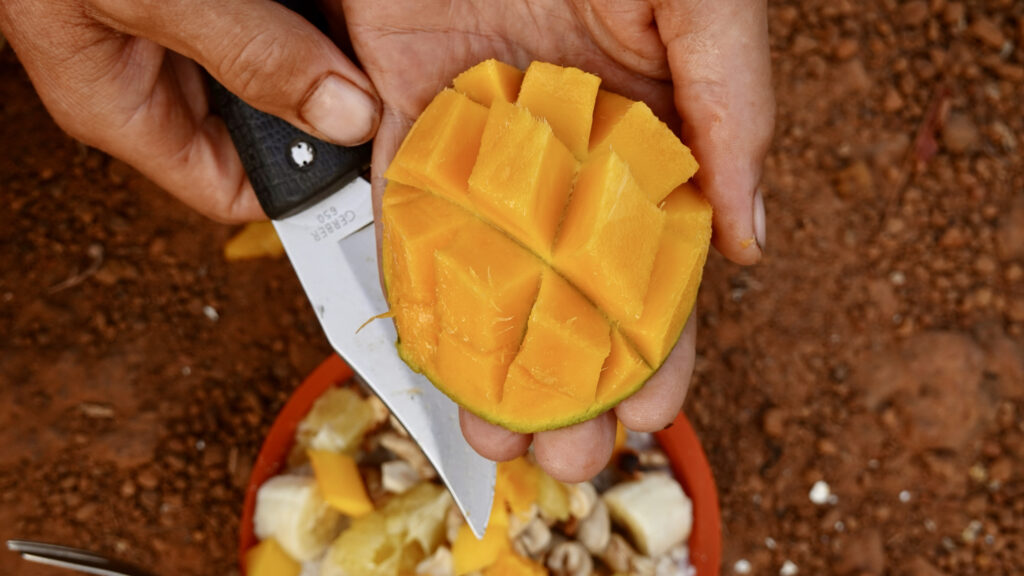
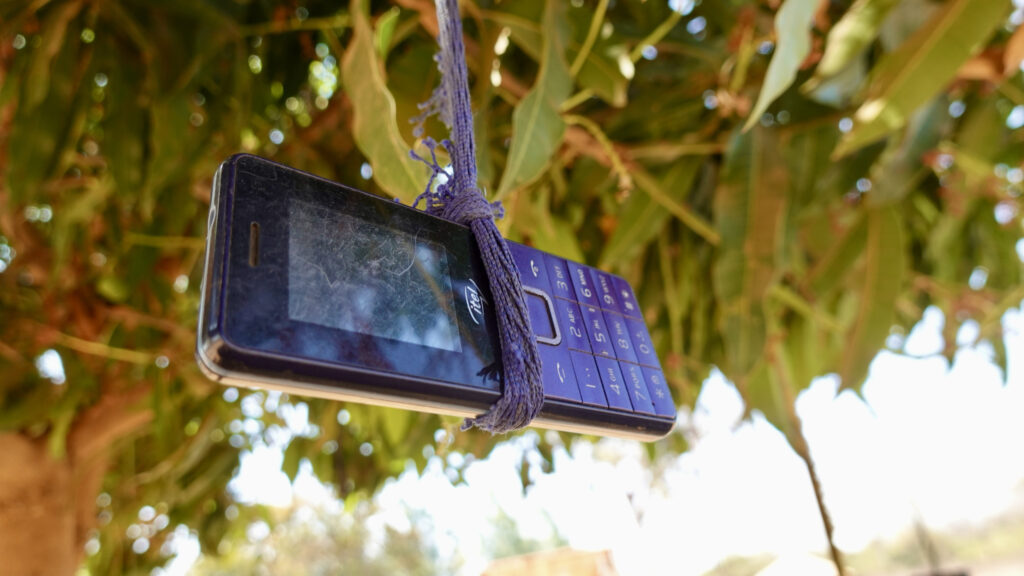
Better late than never
We choose a small border crossing to cross into Guinea. When we get to the small town, we can't find the border office, as it is in a different place than on our map. So we ask around and are guided up to the main road. On the way we spot a small lunch restaurant, and then a couple of hungry cyclists are easily tempted to slow down. We decide we might as well have lunch before we stamp out of the country. The woman conjures an omelet with rice and fresh tomatoes on top.
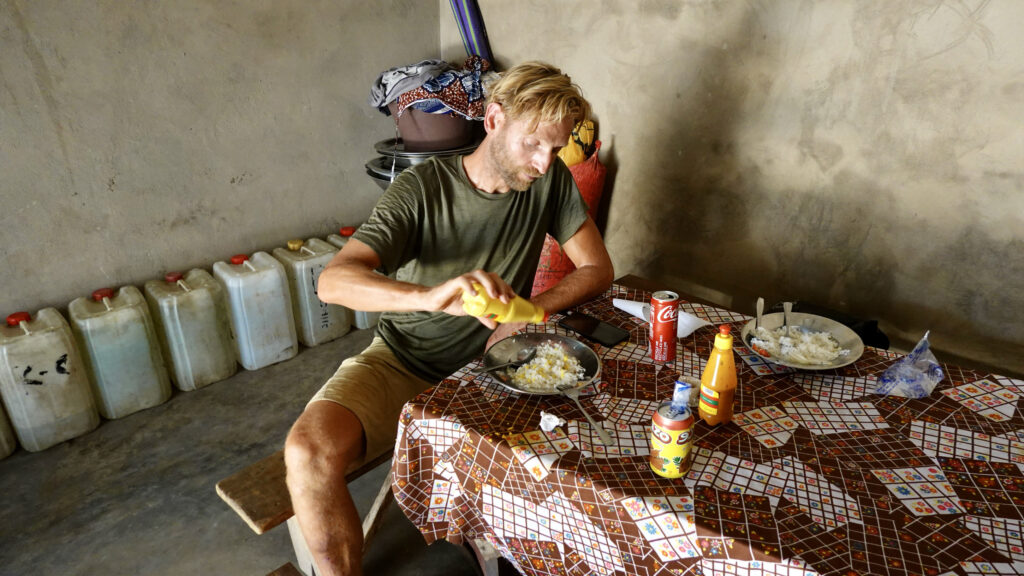

As we are about to order the food, an employee from the border post comes and asks if we are the ones who want to check out of the country. That is it. Reasonably cool that it has already been rumored from the city to the border office. The woman says something we don't quite understand, but we understand that she wants to show us the way to the border post. There is also a man who appears to have several stars on his shoulder. He also says something, but then disappears again. The woman is waiting for us, and after we have eaten, she starts her motorcycle and rides with us up to the border post. What a service we think. The woman takes our passports and goes into the office and tells us to wait. And we wait. And waiting. It feels like a very long time. We ask how long we have to wait, and the woman explains that the border guard is about to pray.
At that moment it dawns on us that it is Friday and the border guard is in the mosque. And that the employee has tried to tell us that you can get your passport stamped now or after the Friday prayer in the mosque. So even though it goes against our Western efficient brains and plan for the day, it's also kind of amazing that traditions are followed while everything grinds to a halt. It's a good test of patience. We manage to sort things out and drink a coke before the border guard finally comes back. Cool, we think. Now is now. He just had to eat before he could stamp us out.
We are stamped out of Guinea-Bissau by a very friendly and smiling border officer, and it took approx. three minutes. We wave goodbye and turn down a small dirt road. At the end of the road, we found the man with a wooden canoe that could sail us into Guinea. New adventures await.
